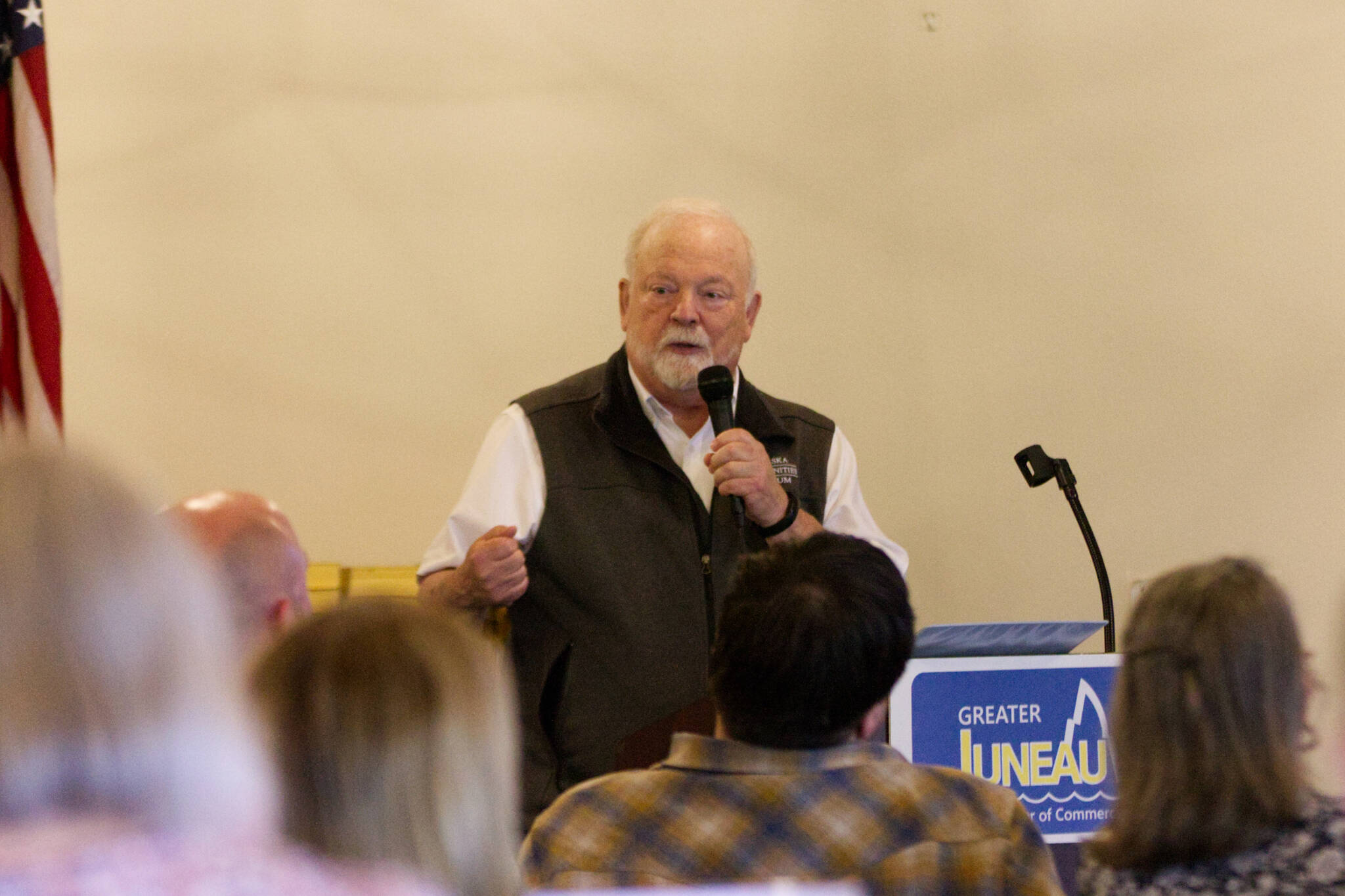The ambient sounds of forks and knives clinking on plates full of pasta played in the background of former Juneau Mayor Bruce Botelho’s presentation on ranked choice voting at the Greater Juneau Chamber of Commerce weekly luncheon on Thursday.
Botelho’s presentation covered a particularly timely topic in Alaska, as the closely approaching special election in August is set to be the first-ever ranked choice election in the state’s history. The election will determine who will fill the U.S. House of Representatives seat that currently remains vacant after the death of longtime U.S. Rep. Don Young. That election will determine who will fill the month’s remaining in Young’s term. At the same time, a primary election will be held decide to decide who will advance to a ranked choice race for a two-year term.
Ranked choice voting is a system of voting that is relatively new to the U.S., with Alaska being the second state in the country to adopt the system after Maine in 2016. Botelho was a strong force behind the state’s adoption of the system as a former co-chair of the campaign Alaskans for Better Elections, a group that advocated for ranked choice voting to become the new way of voting in the state. And the campaign proved fruitful as the ballot initiative was narrowly passed in the November 2020 election.
Now, with the system soon becoming a reality, Botelho used the presentation to explain the importance of knowing how elections will be this year and in the future.
Botelho said he personally found the ranked choice voting system to be appealing after years of watching Alaska politics “moving to extremes” from one side of the spectrum to the other. He said ranked choice voting is beneficial to many factors of Alaska politics and believes it is a way to “promote civility” among voters and politicians.
There are two main differences under the new system, explained Botelho. First, instead of traditional partisan primary elections, voters will receive an open election ballot with all candidates listed and will have the chance to choose the candidate of their choice. The four candidates who receive the most votes will move from there and into the general election.
This process recently concluded for the special election with Republicans Sarah Palin and Nick Begich III and Democrat Mary Peltola set to appear in the special general election. Independent Al Gross finished in third place in the primary, but dropped out of the race shortly afterward. Republican Tara Sweeney, who finished fifth in the special primary, will not appear on special general election ballots following a state Supreme Court decision.
Second, the general election is also different, Botelho said, and people will vote via the ranked choice voting system. Meaning voters can choose to rank the candidates in the order that they deem fits with their interests and down the line — but they also don’t have to. Voters can opt to choose one candidate to vote for and leave the others blank. It comes down to choice, said Botelho.
“You can choose to do so and rank by choice and your preferences, and see if it makes a difference,” Botelho said.
Having the ability to choose, allows for a majority of people to vote in the order of candidates that “support your flavor” and helps ensure the winners hold support from a true majority of voters.
“This system mandates a majority of votes and encourages candidates to broaden their election viability to reach beyond their core group of voters,” Botelho said.
Dr. Emily Kane, a member of the chamber of commerce who attended the luncheon said she is really glad she came to the presentation and ranked choice voting could be a step in the right direction.
“Bruce males such a compelling argument,” Kane said. “It’s a way to enhance representative democracy which is what our country is supposed to be, but there are so many impediments and obstacles, but this is so promising, it’s a way for voters to get reengaged.
Botelho’s three takeaways:
1. “It provides a choice of an array of candidates to choose from.”
2. “This system assures the public that the candidate, he or she will have a mandate of a majority of Alaskans.”
3. “It supports civility.”
• Contact reporter Clarise Larson at clarise.larson@juneauempire.com or at (651)-528-1807. Follow her on Twitter at @clariselarson.

